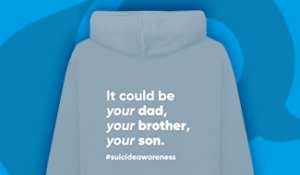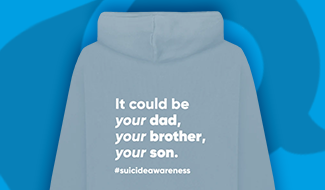You’re splitting up and you have children. You might not want to be connected to your ex any more, but the fact is, you will be. You might be ending your relationship, but you are still a parent. And there are still two of you. And this is the point at which you realise that you are going to be intertwined with this person for a long time. Right around now, you might be hearing lots of different and well-intentioned advice from people about what to do. And that can be confusing. So, we’ve written this blog to help you try and see the wood from the trees and to make decisions about your co-parenting and how you want it to look.
What is co-parenting?
Co-parenting is not necessarily equal time between houses. Rather co-parenting is about sharing decisions and information about your children and making them feel as though they have two parents who can parent them effectively and together. It’s about communicating with your ex about your children in a positive and practical way.
Your children aren’t choosing to divorce you, they want both of you. They love you both. Parents need to be parents, and make fair and strong decisions that mean that their children can be children.
Why should I do it?
When you’re getting divorced or are separating it can be really easy to lose sight of what’s happening for your children and what they are experiencing.
Much of the time, when we’re splitting up with someone, we are going to be managing big emotions. And when we’re feeling full of emotions it can be really hard to see things clearly and it can be hard to see how we’re needed as parents, by our children.
Sometimes we can end up using our children as bargaining collateral, withholding access, wanting to feel as though our children are on ‘my side’. These can feel like victories in the moment.
But these aren’t victories. These actually create a really negative experience for your child. And the impact of these actions, even if they are for a relatively short time period, can last a lifetime. They can impact on how your children form their own relationships, how they show up in society, their anger management, their confidence and so much more.
Learning how to parent together massively reduces the negative impact and helps your child grow up in a whole and functional way.
Parents who work together to keep their child safe, will see their child held and ok. Acknowledging to your kids that it’s not easy going from house to house where rules and the relationship system differ goes a long way to making your child feel heard. If your child feels heard and ok to say when things aren’t working or when things are hard, then you are succeeding in your co-parent relationship.
How do I co-parent?
If you’ve just come out of a difficult break-up, the idea of co-parenting can be really tricky. So the first thing you need to do is take a breath and try to focus on the bigger picture. Try to think ahead to when your children are adults. What do you want them to say about their childhood and their upbringing? How do you want them to be as human beings? The chances are you’ll want them to be fundamentally together people who can deal with challenges as well as form loving and healthy relationships. If you can keep that in mind, even when things are tough, then you’ll have a good basis for co-parenting.
More practically, the most important step you can take in co-parenting is the sharing of information about your child. So, emails that focus on what the children have done recently is always helpful. Avoid talking about yourself, avoid asking your ex questions about their personal life. Keep it business like, and neutral. Listen to what your co-parent has to say. Listen and pause and respond. Ask for opinions about a child related decision. And hold your intention and your co-parents intention of having the welfare of your child front and centre.
What are some top tips to co-parent well?
Have regular meetings. Once a month or twice a year, whatever you need, but schedule them in to talk and catch up with each other about the children. Set an agenda, meet somewhere neutral and have a defined time limit. This keeps the boundaries in place and allows you to just talk about your children.
Set holiday allocations for the twelve months ahead. This way you can plan, your co-parent can plan and your child knows where they will be and when. This is really important for children as stability and structure are key for their resilience.
Don’t question your children about what’s going on in their other house. If you have a functioning co-parenting relationship you should know the key points to talk to your kids about, so by all means discuss the trampoline park they went to with daddy, but don’t question them about things that might make them feel uncomfortable.
What do we do if it gets difficult?
Remember that it won’t be perfect and it will be difficult. Don’t kid yourself, there will absolutely be bumps on this road. But how you respond to them is key. Try to always be respectful and dignified. It’s not easy, but your children will benefit.
From the outset if you can agree together how you will show up to your co-parenting relationship then this can be helpful. At The Co-Parent Way, when we work with parents, we help unpack their intentions for co-parenting with each other and we come up with a charter to help parents remember about how they want to be with each other, even when things are tough. Time and again, parents call me up to say how useful this reminder was during a disagreement.
And finally, your children aren’t choosing to divorce you, they want both of you. They love you both. Parents need to be parents, and make fair and strong decisions that mean that their children can be children.
Posted on October 7, 2021
















